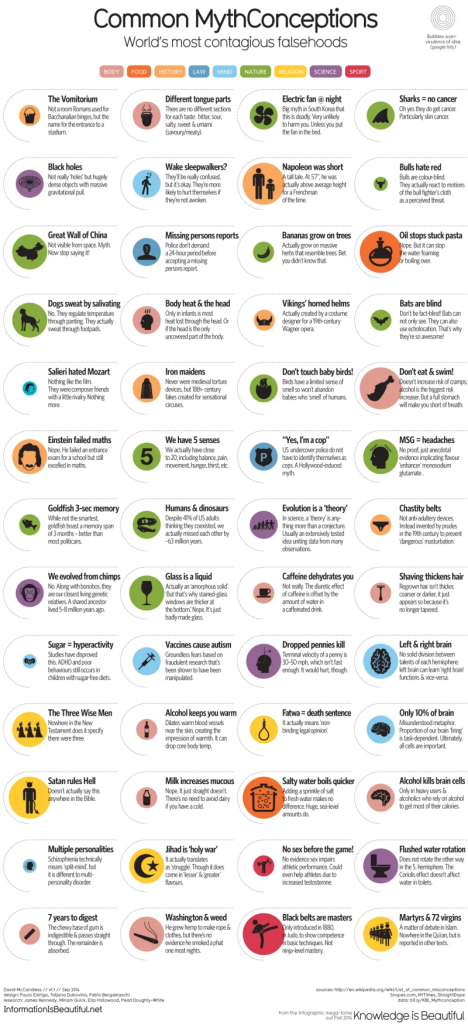I had this infographic below on my desk since 2014. What makes it so surprising is our total belief that this is the case.
- Most educated people will tell that we evolved from monkeys, although the evolutionary branch of monkeys is parallel to ours.
- It is hard to grasp that mammoths and pyramids coexisted, but dinosaurs died before the evolution of snakes (unless we count birds as dinosaurs).
- Religious people often say that the world was created rather than evolved, and atheists do not have any proof otherwise. Even Occam’s razor concept was initially used to prove that God actually exists.
- Most of my very educated friends do not drink coffee, although conclusive medical studies recommend at least 3 cups of coffee per day.
- Medieval knights could run and jump in plate armor. Some of them could even swim and mount horses without the groom’s help. They used a comfortable evenly distributed armor and not the heavy tournament armor of the 16th century.Science is somewhat inconclusive, and for every study, there will be controversies. This makes us somewhat vulnerable to the common sense of the people around us. If we see something on mass media long enough, we basically “saw this with our own eyes”, even though we saw it in the “make belief” scenario. When the media summarizes a complex study with a catchy title, we do not tend to suspect the author in a lack of understanding of the study results. When our friends and esteemed mentors act in a certain way, we do not tend to doubt their common sense.
Critical thinking is a hard task. We can be easily trained to disqualify something because the author was paid to prove a certain outcome. It is harder not to believe someone who simply misunderstood what he saw and honestly believes that he is telling the truth. Sometimes it is even harder to doubt an entertainer who presents something because the idea looks good, like vikings in horned helmets.
Most publications and teachers mass-produce the old paradigms, even if the science moved on. It is much easier than reviewing the texts. If something became a paradigm decades ago, it is still harder to doubt it, like understanding that all of us have more than 20 senses including balance, pain, hunger etc.
It is only natural to trust those whos interest is to educate us. However, how do we honestly know that the educators know what they are doing? We are conditioned to trust parents, doctors, teachers, and policemen. Possibly this is the best bet most of us can make, but it is still betting.
We survived because countless generations bet and won. The famous mathematician and physicist Pascal who invented the science of statistics offered to prove the existence of God as a bet. If God does not exist, then we simply passed on some vices and had a virtuous life which is not that bad. If God exists and we sinned, we will spend an eternity in hell, which is an infinitely bad outcome. So if there is even a small chance of the existence of God, we should better not misbehave. Notice: this does not prove anything, except our willingness to bet.

Get 4 Free Sample Chapters of the Key To Study Book
Get access to advanced training, and a selection of free apps to train your reading speed and visual memory

